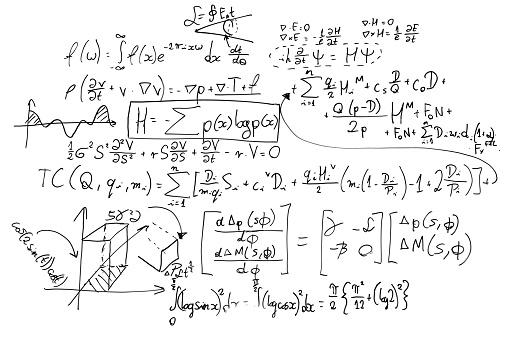
Yes, both of those reasons.
:|
~
I like the cartoon, but responding to your suggested reasons in reverse order:
See no need for it -
That's usually not a matter of aptitude but of attitude: simple refusal to bother to learn it. However, it is also a matter of how it is taught - is it anchored to real life or merely an abstract set of abstruse puzzles for an examination? If taught as the latter, and especially if taught in a dull manner, it won't encourage those already sceptical about "ever needing it".
'
Don't understand it (my problem) -
That can be by low aptitude (me!), but may also result from poor teaching not helping the student see how it works (ditto).
It might work if a different approach is used, such as tying the particular problem area to a simple, physical thing or to a branch of maths the student does find easy.
For me, real things in my work and my hobbies decades after leaving school, led to my finally realising what logarithms and differentiation are, and thus being able to understand them. (I should say that when logs were necessary as arithmetical tools, I could use them as such, but I did not know how they work.)
'
Fear of maths -
I don't think I have met anyone who claims to be afraid of it, and I wasn't either; but there are plenty who admit finding it difficult, and a few who try to bluff their way out of that by rather forlorn attempts to laugh it off.
'
Archerchef reminds me of an little argument I had with one of my nephews who claimed having a calculator means you don't need to learn maths. I asked him, "Ah, but even a scientific calculator only does the arithmetic. You still have to know the mathematics to know what to ask it to work out and in what order!" He could not answer that.
'
Incidentally, Thriftymaid's experiences bear out something I have often noticed over the years, that the US education system seems to break Mathematics topics (algebra , trigonometry, etc.) into discreet curriculum subjects as isolated from each other as History and French, say.
My experience was that the UK's system treats Maths as a curriculum subject in its entirety, in which each topic is a component of the single Maths syllabus - and of course there are many over-laps, particularly for algebra as that is the "language" for the whole discipline. So when you take the examination at the end, you don't take an Algebra Exam, a Geometry Exam, a Trig. Exam... You take a Mathematics Exam which even if in 2 or 3 separate papers, can and usually does cover all topics; sometimes with questions combining two or three topics.
As far as I know this is still the case, and certainly was about 25 years ago when I took a school maths course in evening-classes as a refresher for work reasons.
That course, by the way, introduced me to Matrices I had never previously even heard of. Why they are in the school syllabus I have no idea, for they appeared a singularly abstract field with no stated connections to any other topic, and certainly not to practical applications. Consequently I failed utterly to understand them, though I learnt elsewhere they are used in very high-level scientific calculations and computer graphics programming. (Matrices are not new though - their history is very old, with a lot of refining and development in the 19C.)
All of this now becomes moot as Cancel Culture and Woke Culture are on a tear to have racism addressed and erased by dumbing down the US educational system in that only basic math will be taught until students reach high school. Yep, that’ll certainly help make already lagging US students MUCH more competitive on a global scale . . .![]()